We've been in kind of serious mode with the articles for the past week or so, especially with Monday's article. With that in mind, this article is a complete bit of froth and discusses a topic I've actually covered before, just in less length. So, without further ado, some utter self-indulgent nonsense.
What house are you in? How do you think the Sorting Hat decides? Are you one of those people who thinks that all Slytherins are bad and nasty or do you ascribe to the view that Slytherins are really just misunderstood and any house could go bad? What's the most frustrating thing about being a Ravenclaw? A Gryffindor? Why does everyone make fun of Hufflepuffs? Tell me!
Whatever your overarching question, it seems pretty clear that there's a Buzzfeed article to address it. And that's fine and all, really, but it's been bothering me. Why do we care so much? Not that Harry Potter isn't a fantastic story that was foundational to the development of my generation and kind of reimagined what people thought young adult literature could be, but more that we seem so utterly fixated on this one little piece of it. What house are you in?
Why aren't we more concerned with the rest of the Wizarding World? Why not spend our time talking about what the American and African and Asian wizarding schools are like? We could chat about magical towns all over the world, differing customs and rules. We could develop new headcanons on Beauxbatons and Durmstrang and expand greatly the world that we've been given. And it's not that people don't do this, it's that so much of our collective energy as a fandom seems to stop right there. To stop at the houses.
Why?
I'm not an expert*, but I'd hazard a guess that a lot of our interest in the houses comes from our interest in being classified. Seriously, human beings love their labels. You can see it with the Hogwarts houses, but you can also just plain see it with any personality quiz kicking around the internet. These quizzes are silly and never meant to be taken seriously, but people ascribe so much importance to them. Am I a Carrie or a Samantha? Do I belong in the 1960s or the 1920s? What's my Celtic tree birth sign?
We long for these little quizzes to give us some kind of insight into who we are. Like if we answer the right questions - and don't get me wrong, I totally do this too - we'll magically figure ourselves out and discover a new layer of complexity in our own hearts.
It seems to expand out into every part of our cultural experience too, with some stories even tapping into that primal joy of putting a label on our identity. I mean, Divergent isn't a bad book by any means, but I think one of the chief interests there was in getting to play around with all those different identities.
What do you think will make for a good society? Do we need people who are brave and courageous? Then you must belong to Dauntless! Do you think we all need to be really really smart? Erudite. Should everyone focus on being as honest as possible? Well then we need Candor. Are happiness and peace most important? Then that would put you in Amity. Or do you think what the world needs is less "me" and more "we"? Well, ma'am, step right up because you belong in Abnegation.
We love to classify ourselves. There's something primally comforting about it. Like I said, I'm no expert, but I think it has to do with our desire to exist in society with each other. Our deep need to belong and be known. Our want to be understood. See, human beings were made to live in community. Otherwise the human race as we know it wouldn't exist. At some point, thousands of years ago, we realized that not only is life better together, life is exponentially more pleasant and, well, easy when we belong to a group.
The very nature of human history is built on our desire to belong and to build together. Unfortunately we also kind of suck and so we use these little labels and ways of belonging to poke at each other and exclude each other and kill each other. Saying what house you're in in Harry Potter often devolves into just saying why the other houses aren't worth your time.
Which blows, because actually, when we get down to it, I think that Rowling's house system is pretty seriously brilliant.
I bet you didn't see that coming! See, for all that I think that we humans are pretty over-reliant on external classifications, I also think that questions like this can serve a very important purpose. Yes, what matters most is the weight of your character and your internal moral compass. But questions like "What house are you in?" are surprisingly good at illuminating facets of our personalities that we tend to ignore.
Please note that I said that this is useful when talking to other people. By and large I don't actually think that sorting quizzes, even the ones at Pottermore, work. And I don't really think that your house affiliation is apt to say much about you to you. That's because I think your true house, the one that actually matters, is whichever house is your favorite. Scandalous, I know.
But I'm serious. I give no merit to those questionnaires that are supposed to suss out the real you and surprise you with your house affiliation. Because, as we can see pretty clearly in the books, your aptitude is pretty unrelated to your house. The Sorting Hat doesn't sort Harry based on what he's good at. It sorts him based on what he values.
Remember the scene? Harry's a little baby lamb of eleven, just come to Hogwarts for the first time, and McGonagall puts the Hat on his head:
Hmm, difficult. VERY difficult. Plenty of courage, I see. Not a bad mind, either. There's talent, oh yes. And a thirst to prove yourself. But where to put you?
The Sorting Hat essentially says that Harry has the necessary qualities for three of the main houses. He's got a lot of courage, so he'd do well in Gryffindor. But he's also very clever. Well, Ravenclaw might work. And then again, he's very ambitious and wants to prove his worth. Slytherin all the way. Harry Potter isn't just one thing, he's a mush of traits and characteristics, like everyone. And as the scene goes on, it becomes clear that the Hat isn't just figuring out what Harry's best at. When Harry begs it not to put him in Slytherin - because he's heard that's where the bad wizards go, thanks Hagrid - the Hat actually listens to his request.
In other words, Harry wasn't sorted based on his aptitude for bravery, he was sorted because he values bravery more than he values ambition or intelligence. And that matters a hell of a lot. It also explains why an exceptional mind like Hermione's ends up in the daredevil house while an incredibly courageous young man like Cedric Diggory winds up in Hufflepuff. Why else would Ron "loyal to the death" Weasely be in Gryffindor and not Hufflepuff? And what about Draco Malfoy? He'd have made an excellent Ravenclaw.
No, they were put into their houses because they effectively chose to be there. Because they valued the primary trait of their houses more than the traits of the others. Hermione is in Gryffindor and not Ravenclaw because she values courage more than intelligence. Cedric Diggory is a Hufflepuff because no matter his actual aptitude for it, he values compassion and loyalty more than courage or intelligence or ambition.
You are sorted based on your heart's chief values, not your actual abilities. And that's why I don't stand by an sorting quiz. Oh they're nice and when you get the answer you want it feels so rewarding, but they're not real. If you have an answer you already want to get, then that means you already know what you value most.
I tend to think of this in very personal terms, for the simple fact that I think of myself as a Hufflepuff while most everyone I know would call me a Ravenclaw. And I don't disagree that I'm a massive nerd. I own a bunch of books in Vietnamese on the off chance that someday I get around to learning the language. I'm a book hoarder. I love knowing things. I crave knowing things. Coursera is like crack to me.
But I don't value my intelligence. I mean, I do, but it's not what I think is most important. I would rather be a person of compassion and kindness than someone who's smart. I'd rather be a Hufflepuff, all egalitarian and generous and gentle. I don't have any inherent gift for this. I'm actually kind of crap at it. Really. I can be cold and judgmental and stingy and petty and I don't really like spending time with people when I'm tired. I'd rather curl up on my own and pretend no one else in the world has problems that need to be dealt with.
I don't like that part of myself. I'm actively working to change it. I want to be a Hufflepuff, the kind of person who cares openly and freely and is soft and warm and gentle inside. I don't like being the sort of person who people think of as "prickly" and "harsh". I want to be good, that sort of good that makes you feel good too. I want to be a Hufflepuff, and, according to the logic of the books, that makes me a Hufflepuff.
Which is why the houses are actually brilliant. Asking someone what house they're in can be the most fascinating gateway into their innermost being if you know what it is to ask. When you're asking for their house, what you're asking isn't, "Who are you right now?" it's "Who do you want to be?" I want to be a compassionate person, so my favorite house is the one where that is expected of you. I want to rise to that expectation.
Asking someone for their favorite house can tell you so much about them. It's like this other game I like to play. "Tell me a story." Seriously, you just ask someone to tell you a story, the first one that pops into their head. Chances are, that story will say more about who that person is and wants to be than five dinner dates and an online dating profile. What house are you in? You're in whichever house you think is the best.
I'm not going to go into a big huge psychological analysis here, showing what your preference for each house means about you, because that is the opposite of what this article is about. Instead, I want to leave you with this one question: Why?
Why is that your favorite house, whatever one it is? Why do you so desperately wish to be labeled as a Ravenclaw or Hufflepuff or Gryffindor or Slytherin? What part of external validation does this label give you? Who are you with it? Who are you without it?
And, most importantly, who do you want to be?
*Insofar as there is an expert in this sort of thing. I don't know. Maybe I am? I do have a Master's degree...

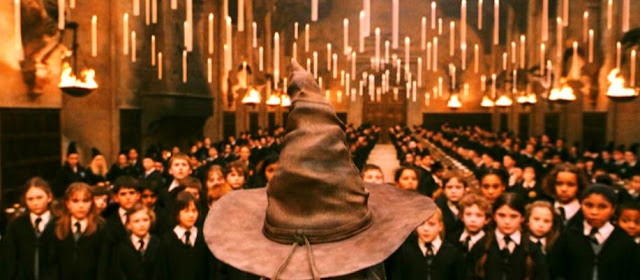
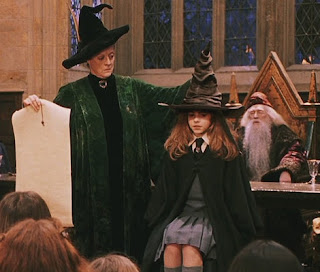
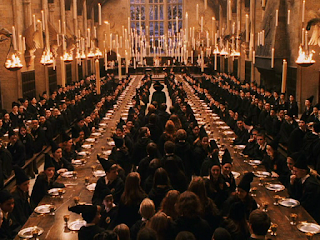
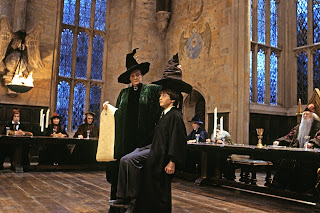
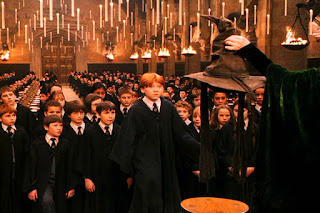
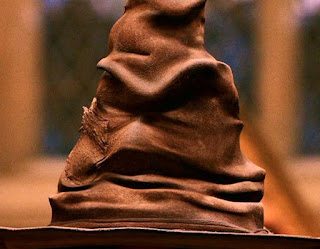

I'd consider myself Hufflepuff, too. After learning they're the only house no dark wizard or witch came from, I was like "that's awesome! That's where I'd want to be!"
ReplyDeleteExactly! Hufflepuffs for the win!
DeleteKOLKATA CALL GIRLS ESCORTS
ReplyDeleteKOLKATA CHEEP ESCORTS
KOLKATA CALL GIRLS NUMBER ESCORTS
KOLKATA HIGH PROFILE ESCORTS
KOLKATA AIRHOSTESS ESCORTS
KOLKATA PARK HOTEL ESCORTS
KOLKATA PARK HOTEL ESCORT
KOLKATA FIVE STAR ESCORT SERVICE
KOLKATA HOUSEWIFE ESCORT SERVICE
KOLKATA BOUDHI ESCORTS
INDEPENDNET ESCORT IN KOLKATA
KOLKATA ESCORT AGENCY
RUSSIAN ESCORT
RUSSIAN ESCORTS
RUSSIAN CALL GIRL
RUSSIAN CALL GIRLS
HOUSEWIFE ESCORT
HOUSEWIFE ESCORTS
HOUSEWIFE CALL GIRLS
HOUSEWIFE CALL GIRL
MODEL ESCORT
MODEL ESCORTS
COLLEGE CALL GIRL
COLLEGE CALL GIRLS
INDEPENDENT ESCORT SERVICE
INDEPENDENT ESCORTS SERVICE
INDEPENDENT ESCORTS SERVICES
INDEPENDENT CALL GIRL
INDEPENDENT CALL GIRLS